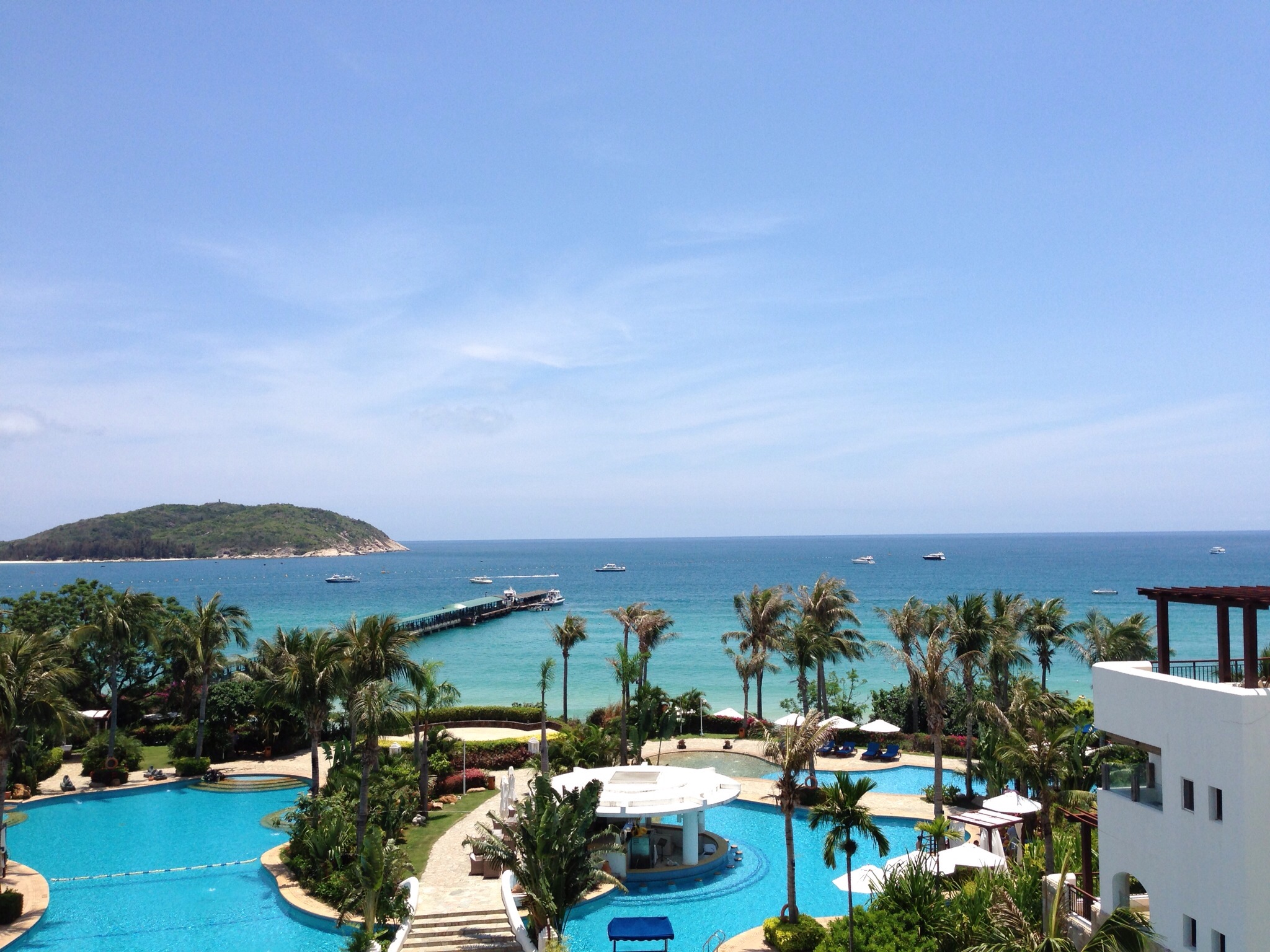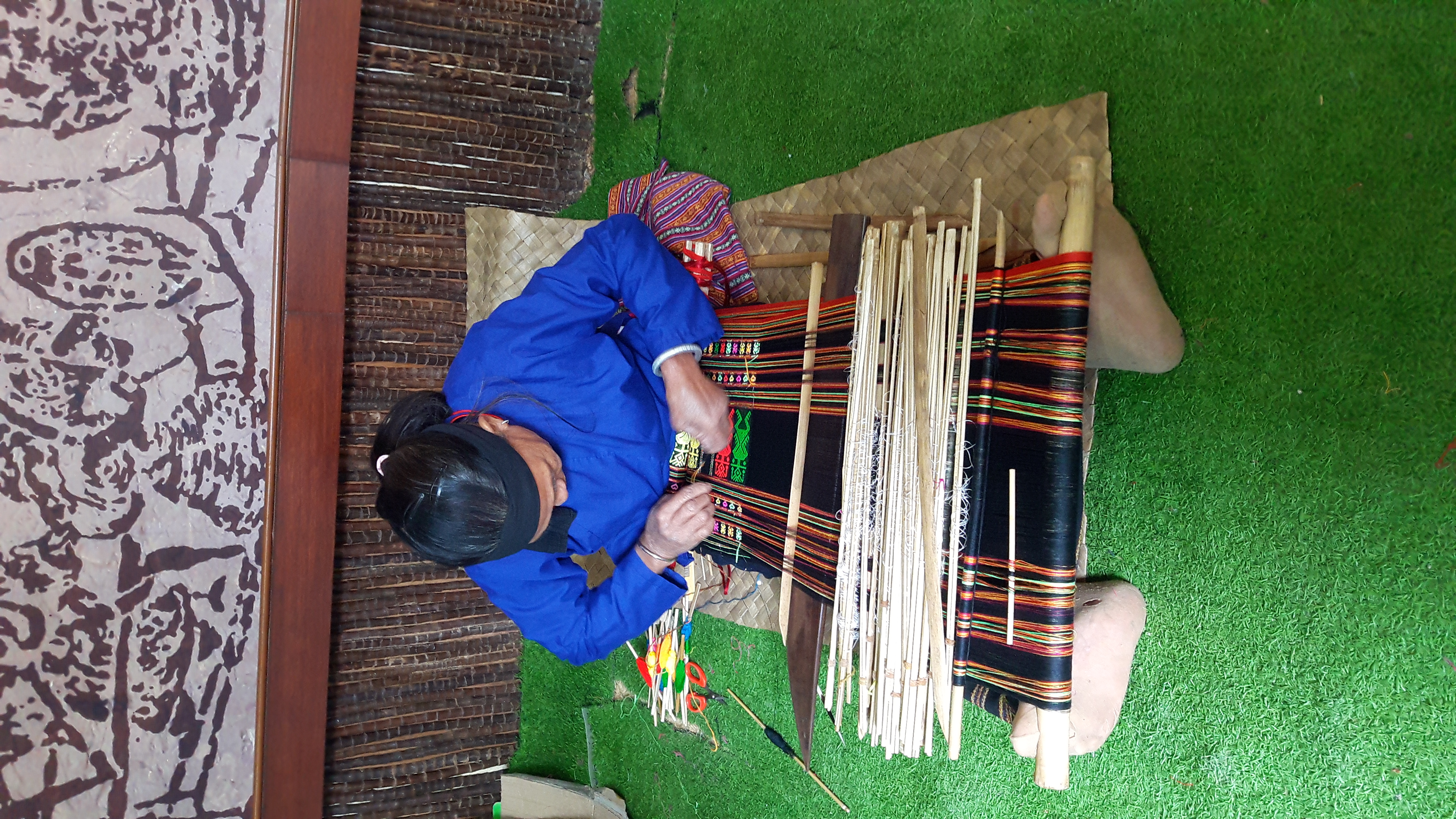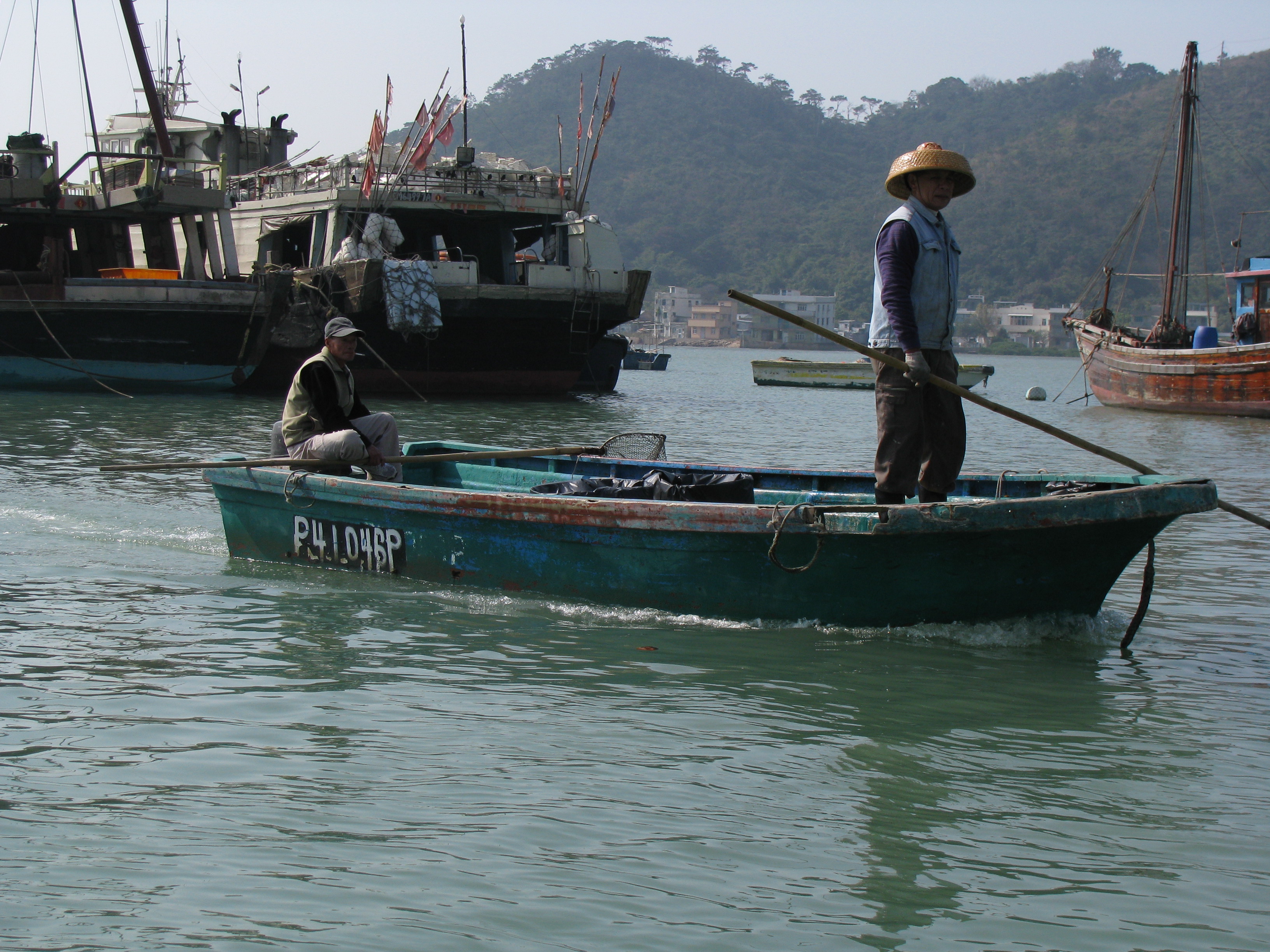|
Hainan People
The Hainan people (), also known as Hainam nang (pronounced in Hainanese) or Hainanese people, is a geographic term referring to the natives of Hainan, the southernmost and smallest Chinese province. The term "Hainanese" was frequently used to refer to all natives of Hainan island. Hainam Min speakers often refer to themselves as Qiongwen to distinguish themselves from other groups of Hainan such as the Cantonese, the Tanka, the Hlai, etc. History Most Hainam Han people were originally fishers from nearby later settled in the island of Hainan, while the Lingaoese, Hlai, Tanka invaded the island earlier and were descendants of the Yue tribe. Later on Hainam Min-speaking colonists arrived and colonized Hainam island from the three districts of Xinghua prefecture chasing the native aborigines to the impoverished mountain areas. As a result of the assimilation of other dialect groups, many Hainanese genetically cluster with Han Chinese from Guangdong and Guangxi instead of Fuji ... [...More Info...] [...Related Items...] OR: [Wikipedia] [Google] [Baidu] |
Hainan
Hainan (, ; ) is the smallest and southernmost province of the People's Republic of China (PRC), consisting of various islands in the South China Sea. , the largest and most populous island in China,The island of Taiwan, which is slightly larger, is claimed but not controlled by the PRC. It is instead controlled by the Republic of China, a ''de facto'' separate country. makes up the vast majority (97%) of the province. The name means "south of the sea", reflecting the island's position south of the Qiongzhou Strait, which separates it from Leizhou Peninsula. The province has a land area of , of which Hainan the island is and the rest is over 200 islands scattered across three archipelagos: Zhongsha, Xisha and Nansha. It was part of Guangdong from 1950–88, after which it resumed as a top-tier entity and almost immediately made the largest Special Economic Zone by Deng Xiaoping as part of the then-ongoing Chinese economic reform program. Indigenous peoples like th ... [...More Info...] [...Related Items...] OR: [Wikipedia] [Google] [Baidu] |
Kim Mun Language
Kim Mun language (金门方言) is a Mienic language spoken by 200,000 of the Yao people in the provinces of Guangxi, Hunan and Hainan, with about 61,000 of the speakers in Hainan Province (figures as per Ethnologue, 25th Edition). Iu Mien and Kim Mun are very similar to each other, having a lexical similarity percentage of 78%. Distribution In China, Kim Mun is spoken in the following counties (Mao 2004:304-305). *''Yunnan'': Hekou, Malipo, Maguan, Xichou, Qiubei, Guangnan, Funing, Yanshan, Shizong, Jiangcheng, Mojiang, Yuanyang, Jinping, Lüchun, Mengla, Jinghong *''Guangxi'': Xilin, Lingyun, Napo, Tianlin, Fengshan, Bama, Lipu, Pingle, Mengshan, Jinxiu, Yongfu, Luzhai, Fangcheng, Shangsi *''Hainan'': Qiongzhong, Baoting, Qionghai, Tunchang, Ledong, Wanning, Yaxian The Ethnologue lists several counties in Vietnam where Kim Mun is spoken. The Van Ban district of Lao Cai province is perhaps the primary area. In Vietnam, Dao people The Yao people (its majority branch is al ... [...More Info...] [...Related Items...] OR: [Wikipedia] [Google] [Baidu] |
Fisherman
A fisher or fisherman is someone who captures fish and other animals from a body of water, or gathers shellfish. Worldwide, there are about 38 million commercial and subsistence fishers and fish farmers. Fishers may be professional or recreational. Fishing has existed as a means of obtaining food since the Mesolithic period.Profile for the USA * inadequate preparation for emergencies * poor vessel maintenance and inadequate safety equipment * lack of awareness of or ignoring stability issues. Many fishers, while accepting that fishing is dangerous, staunchly defend their independence. Many proposed laws and additional regulation to increase safety have been defeated because fishers oppose them. Alaska's commercial fishers work in one of the world's harshest environments. Many of the hardships they endure include isolated fishing grounds, high winds, seasonal darkness, very cold water, icing, and short fishing seasons, where very long work days are the norm. Fatigue, physical st ... [...More Info...] [...Related Items...] OR: [Wikipedia] [Google] [Baidu] |
The Survey April-September 1920 (1920) (14784285493)
''The'' () is a grammatical article in English, denoting persons or things already mentioned, under discussion, implied or otherwise presumed familiar to listeners, readers, or speakers. It is the definite article in English. ''The'' is the most frequently used word in the English language; studies and analyses of texts have found it to account for seven percent of all printed English-language words. It is derived from gendered articles in Old English which combined in Middle English and now has a single form used with pronouns of any gender. The word can be used with both singular and plural nouns, and with a noun that starts with any letter. This is different from many other languages, which have different forms of the definite article for different genders or numbers. Pronunciation In most dialects, "the" is pronounced as (with the voiced dental fricative followed by a schwa) when followed by a consonant sound, and as (homophone of pronoun ''thee'') when followed by a ... [...More Info...] [...Related Items...] OR: [Wikipedia] [Google] [Baidu] |
Hlai People
The Hlai, also known as Li or Lizu, are a Kra–Dai-speaking ethnic group, one of the 56 ethnic groups officially recognized by the People's Republic of China. The vast majority live off the southern coast of China on Hainan Island, where they are the largest minority ethnic group. Divided into the five branches of the Qi (Gei), Ha, Run (Zwn), Sai (Tai, Jiamao) and Meifu (Moifau), the Hlai have their own distinctive culture and customs. Names 黎 (Lí), which was pronounced /lei/ in Middle Chinese is the Chinese transcription of their native name, which is Hlai. They are sometimes also known as the "Sai" or "Say". During China's Sui Dynasty, their ancestors were known by various names, including ''Lǐliáo'' (), a general term encompassing several non-Han ethnic groups in Southern China. The name Li first is recorded during the Later Tang period (923–937 CE). History Liang & Zhang (1996:18-21) believe that the original homeland of the Hlai languages was the Leizhou P ... [...More Info...] [...Related Items...] OR: [Wikipedia] [Google] [Baidu] |
Tanka People
The Tankas or boat people are a sinicised ethnic group in Southern China who have traditionally lived on junks in coastal parts of Guangdong, Guangxi, Fujian, Hainan, Shanghai, Zhejiang and along the Yangtze river, as well as Hong Kong, and Macau. The boat people are referred to with other different names outside of Guangdong (not called Tanka). Though many now live onshore, some from the older generations still live on their boats and pursue their traditional livelihood of fishing. Historically, the Tankas were considered to be outcasts. Since they were boat people who lived by the sea, they were sometimes referred to as "sea gypsies" by both Chinese and British. Tanka origins can be traced back to the native ethnic minorities of southern China known historically as the Baiyue who may have taken refuge on the sea and gradually assimilated into Han culture. However, Tanka have preserved many of their native traditions that are not found in Han Chinese culture. A small numbe ... [...More Info...] [...Related Items...] OR: [Wikipedia] [Google] [Baidu] |
Cantonese People
The Cantonese people () or Yue people (), are a Yue-speaking Han Chinese subgroup originating from or residing in the provinces of Guangdong and Guangxi (collectively known as Liangguang), in Southern Mainland China. Although more accurately, "Cantonese" refers only to Han Chinese with roots from Guangzhou and its satellite cities and towns, rather than simply and generally referring to the people of the Liangguang region. Historically centered and predominant in the Pearl River Basin shared between Guangdong and Guangxi, the Cantonese people are also responsible for establishing their native language's usage in Hong Kong and Macau during their 19th century migrations within the times of the British and Portuguese colonial eras respectively. Cantonese remains today as a majority language in Guangdong and Guangxi, despite the increasing influence of Mandarin. Taishanese people may also be considered Cantonese but speak a distinct variety of Yue Chinese, Taishanese. Terminology ... [...More Info...] [...Related Items...] OR: [Wikipedia] [Google] [Baidu] |
Province
A province is almost always an administrative division within a country or sovereign state, state. The term derives from the ancient Roman ''Roman province, provincia'', which was the major territorial and administrative unit of the Roman Empire, Roman Empire's territorial possessions outside Roman Italy, Italy. The term ''province'' has since been adopted by many countries. In some countries with no actual provinces, "the provinces" is a metaphorical term meaning "outside the capital city". While some provinces were produced artificially by Colonialism, colonial powers, others were formed around local groups with their own ethnic identities. Many have their own powers independent of central or Federation, federal authority, especially Provinces of Canada, in Canada and Pakistan. In other countries, like Provinces of China, China or Administrative divisions of France, France, provinces are the creation of central government, with very little autonomy. Etymology The English langu ... [...More Info...] [...Related Items...] OR: [Wikipedia] [Google] [Baidu] |
Buddhism
Buddhism ( , ), also known as Buddha Dharma and Dharmavinaya (), is an Indian religion or philosophical tradition based on teachings attributed to the Buddha. It originated in northern India as a -movement in the 5th century BCE, and gradually spread throughout much of Asia via the Silk Road. It is the world's fourth-largest religion, with over 520 million followers (Buddhists) who comprise seven percent of the global population. The Buddha taught the Middle Way, a path of spiritual development that avoids both extreme asceticism and hedonism. It aims at liberation from clinging and craving to things which are impermanent (), incapable of satisfying ('), and without a lasting essence (), ending the cycle of death and rebirth (). A summary of this path is expressed in the Noble Eightfold Path, a training of the mind with observance of Buddhist ethics and meditation. Other widely observed practices include: monasticism; " taking refuge" in the Buddha, the , and the ; ... [...More Info...] [...Related Items...] OR: [Wikipedia] [Google] [Baidu] |
Christianity
Christianity is an Abrahamic monotheistic religion based on the life and teachings of Jesus of Nazareth. It is the world's largest and most widespread religion with roughly 2.38 billion followers representing one-third of the global population. Its adherents, known as Christians, are estimated to make up a majority of the population in 157 countries and territories, and believe that Jesus is the Son of God, whose coming as the messiah was prophesied in the Hebrew Bible (called the Old Testament in Christianity) and chronicled in the New Testament. Christianity began as a Second Temple Judaic sect in the 1st century Hellenistic Judaism in the Roman province of Judea. Jesus' apostles and their followers spread around the Levant, Europe, Anatolia, Mesopotamia, the South Caucasus, Ancient Carthage, Egypt, and Ethiopia, despite significant initial persecution. It soon attracted gentile God-fearers, which led to a departure from Jewish customs, and, a ... [...More Info...] [...Related Items...] OR: [Wikipedia] [Google] [Baidu] |
Taoism
Taoism (, ) or Daoism () refers to either a school of Philosophy, philosophical thought (道家; ''daojia'') or to a religion (道教; ''daojiao''), both of which share ideas and concepts of China, Chinese origin and emphasize living in harmony with the ''Tao'' (, 'Thoroughfare'); the ''Tao'' is generally defined as the source of everything and the ultimate principle underlying reality. The ''Tao Te Ching'', a book containing teachings attributed to Laozi (), together with the later Zhuangzi (book), writings of Zhuangzi, are both widely considered the keystone works of Taoism. Taoism teaches about the various disciplines for achieving perfection through self-cultivation. This can be done through the use of Taoist techniques and by becoming one with the unplanned rhythms of the all, called "the way" or "Tao". Taoist ethics vary depending on the particular school, but in general tend to emphasize ''wu wei'' (action without intention), naturalness, simplicity, spontaneity and the ... [...More Info...] [...Related Items...] OR: [Wikipedia] [Google] [Baidu] |
Confucianism
Confucianism, also known as Ruism or Ru classicism, is a system of thought and behavior originating in ancient China. Variously described as tradition, a philosophy, a religion, a humanistic or rationalistic religion, a way of governing, or a way of life, Confucianism developed from what was later called the Hundred Schools of Thought from the teachings of the Chinese philosopher Confucius (551–479 BCE). Confucius considered himself a transmitter of cultural values inherited from the Xia (c. 2070–1600 BCE), Shang (c. 1600–1046 BCE) and Western Zhou dynasties (c. 1046–771 BCE). Confucianism was suppressed during the Legalist and autocratic Qin dynasty (221–206 BCE), but survived. During the Han dynasty (206 BCE–220 CE), Confucian approaches edged out the "proto-Taoist" Huang–Lao as the official ideology, while the emperors mixed both with the realist techniques of Legalism. A Confucian revival began during the Tang dynasty (618–907 CE). In the late Tang, C ... [...More Info...] [...Related Items...] OR: [Wikipedia] [Google] [Baidu] |
_(14784285493).jpg)


.png)





